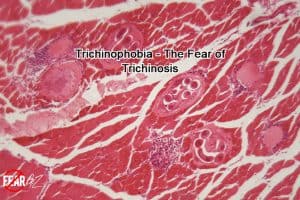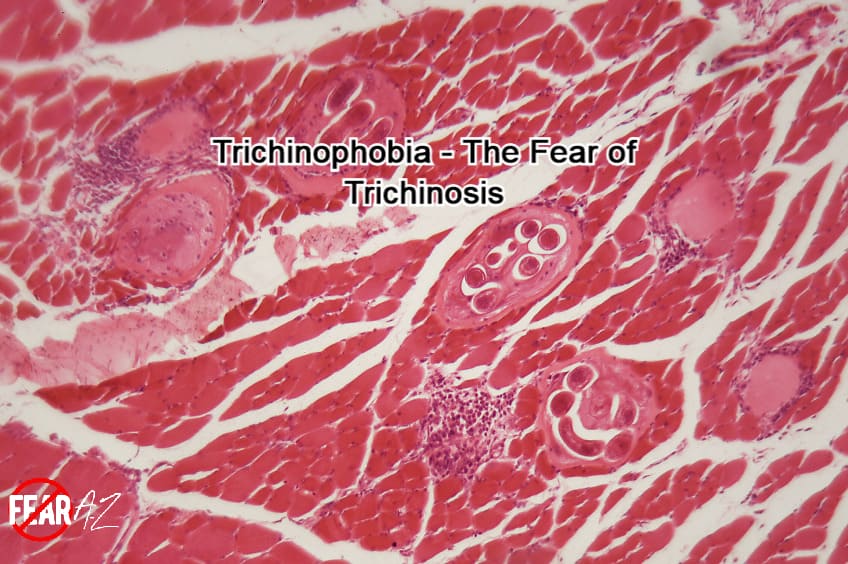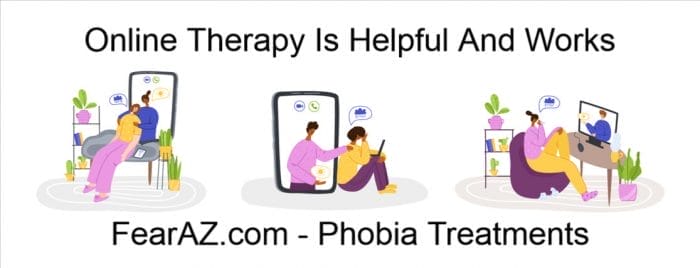Share This Article
Fear Trichinosis, Avoid Trichinophobia
Trichinosis is a serious and troublesome condition. Parasites living in your body? Who wouldn’t be unsettled at the thought?
But developing a phobia over the idea of trichinosis is something else entirely.
Do you avoid game meat at all costs? Is sushi not on your menu, ever!
Do you feel sick even thinking about the roundworm infection you may get from undercooked meat?
If you answer yes, you may have trichinophobia, the fear of trichinosis.
Explaining to your loved ones why you are so particular about the meat being cooked properly must be another concern. Will they understand the terror that grips you at the thought of acquiring the parasitic infection? Or will they poke fun at you? Living in constant fear of getting sick can be sickening in itself.
You have probably avoided countless meals, no matter how tasty they smelled or looked, for fear that the meat may be undercooked.
And although you may think this is rare, you’re not alone. You can refer to a list of phobias for evidence of that.
Also, there’s no need to lose hope. With a combination of self-help and professional treatment, you can overcome your fear.
Keep reading to learn more about the causes of trichinophobia, its symptoms, and treatments.

Trichinophobia Definition
Trichinophobia is the fear of trichinosis. Someone with the phobia fears acquiring the parasitic infection caused by the microscopic parasite called trichinella.
Trichinosis is a food-borne disease spread by eating undercooked or raw meat of an infected animal.
People who have the phobia become anxious at the thought of getting sick with trichinosis. Their fear may reach a level where they may experience panic attacks at even the thought of eating meat.
The person is in constant fear of acquiring the infection rather than merely being disgusted by the disease or its symptoms.
Oftentimes, people with the phobia try to avoid the object of the fear. So, they may not attend events involving meals such as barbecue parties or dinner events hosted at venues they don’t trust. However, it is just an avoidance technique and does not help overcome the phobia.
Is Trichinophobia a Phobia of Fear or Disgust?
Potential Causes of Trichinophobia
Getting to the root cause of a phobia can be beneficial in determining the treatment plan and help speed up recovery. However, it’s often not possible to get to the root as the patient may not know exactly what triggered the phobia.
A person may develop anxiety disorders like trichinophobia for various reasons. These causes may singly or in combination be the reason for the development of the phobia.
Genetic predisposition: Someone with a family member or a family history of mental illness, especially anxiety disorder or specific phobia, has a high chance of acquiring the phobia. Such individuals are genetically predisposed to mental illnesses, and sometimes the slightest trigger can lead to the onset of the phobia.
Experience: If you experienced being sick with trichinosis or saw someone struggle with it, it can lead to the development of fear. Also, as trichinosis can be fatal, hearing about someone dying from the infection can instill a fear of death, bringing on trichophobia.
Learned behavior: If you know someone with the phobia, their description of the fear can also be instilled in your mind. Having absorbed and learned their fears may have caused you to develop your own.
Symptoms of Trichinophobia
Symptoms vary from one individual to another and depend on the severity of the phobia. While those with mild cases of trichinophobia may experience sweating and other mild physical symptoms, those with extreme cases may experience panic attacks.
Depending upon the intensity of the phobia, a person may experience four or more of the symptoms listed below.
Physical Symptoms
- Increased rate of breathing
- Increased heart rate
- Sweating
- Muscle tension
- Trembling
- High blood pressure
Psychological Symptoms
- Anxiety
- Panic attacks
- Constantly thinking about trichinosis and things that may cause trichinosis
- Avoiding eating at new places
- Fear of dying
- Fear of dread
Treatment of Trichinophobia
Like other phobias, there is no definitive treatment for trichinophobia. However, the different treatment options used for other specific phobias also work well to treat trichinophobia.
Self-Help
Before trying any treatment options, first try to help yourself. You are well aware of your case, the cause, the triggers, and more.
Reading about the phobia, maintaining a journal, and recording observations like triggers, the progression of your condition, and what helps you will go a long way in helping you overcome your fear.
You can also try other self-help techniques like relaxation, yoga, and meditation. These techniques relax the mind and cause the release of feel-good hormones.
You can also try the exposure technique. Although doctors do it in a professional setting, you can try the same yourself. You can gradually expose yourself to the object of your fear to the point where you become desensitized to it.
Professional Help
You may also consider seeking the help of a therapist. Therapists can expertly guide you through the process of overcoming your fear. Many treatment techniques are available, and they will employ the ones they deem most fit for you.
As discussed above, therapists may try exposure techniques. They may also use cognitive behavioral therapy (CBT). CBT may help clients uncover the cause of their phobia. It’s helpful in modifying someone’s thought process and replacing irrational and negative thoughts with positive, more rational ones.
Therapists may also use techniques like mindfulness-based stress reduction (MBSR), dialectical behavior therapy (DBT), and other talking treatments to help clients overcome their fear.
In extreme cases, doctors may prescribe medication, like antidepressants, beta-blockers, and anti-anxiety medication until the patient responds to therapy techniques.
Learning to Cope with Trichinophobia
Trichinophobia may limit your social life. The anxiety and dread of acquiring the disease may stop you from attending social gatherings. You may even stop eating meat altogether.
Trying self-help techniques can help you overcome or at least reduce the levels of anxiety.
If self-help doesn’t work, you can seek professional help. Licensed practitioners will guide you through the process and help you regain a sense of normalcy.
Conclusion
Trichinophobia can affect your social life and may even limit your diet. However, you do not have to live with fear. A little help from family, friends, or a professional will help you get back to a fear-free and fulfilling lifestyle.




